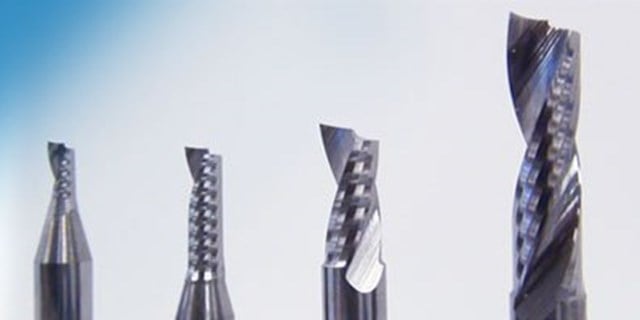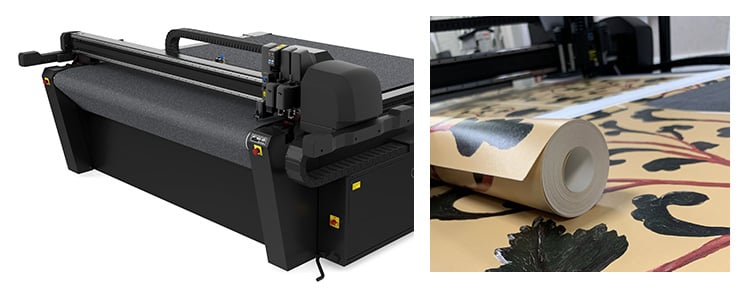
Tech Review 16/07/2019

Over the past several years, wallpaper has made a huge comeback as a quick, affordable and trendy décor option for creating a statement wall or making a room pop. Then making your home and office stand out while staying on-trend is every homeowner and business owner’s goal.
So, where wallpaper used to be functional in home interiors, now it can also reflect the branding of a company or the personality of the resident. And more often wallpaper designs become brighter, bolder and funkier. Also, the textures are much more appealing and versatile, which can be a challenge for the finishing stage where these wallpapers need to be cut.
Below are a few indications about cutting wallpapers with the Summa flatbed cutters from the F Series – even those with complex textures.
Key points of cutting wallpaper:
Summa flatbed cutters perfectly compensate intricate deformations
Wallpaper materials consist of a single layer of media. When cutting wallpaper, you are cutting through the complete media. If you would use a roll cutter, the media is perforated so it can be torn off afterwards. However, this method adds to the workload and does not create a clean edge, which is necessary since the edge remains visible when the wallpaper is applied. Flatbed cutters, such as the Summa flatbed cutters from the F Series, will perform a better job as they can cut through and follow intricate details generated by the printing process.

Use Summa’s high-torque rotary module to obtain a clean cut
Wallpaper increasingly consists of textile-based materials with complex textures. This requires the right cutting techniques. Although a standard knife might do to cut paper-based wallpapers, the woven fibre wallpapers will require a rotary knife to be cut. The rotary knives cut fibres and weave a lot better than standard-shaped knives. Dedicated flatbed cutters, such as the Summa F Series models, can hold high-torque rotary knives to obtain the nicest finishing result in any type of wallpaper.
Flatbed cutters have no discolouration of the edges
When finding out which cutter is right for the job, it is mentioned already that roll cutters are not ideal due to the perforated cut. But what about laser cutting systems? Laser cutting is contactless but cutting any natural material will show slight discolouration on the edges, especially on paper-based wallpaper. Also, PVC-based types of media should not be cut with a laser as this might even have hazardous outcomes for the operator’s health. So the advice is clear, it is better not to use a laser cutting system when cutting these types of wallpaper, but confidently use a Summa F Series flatbed cutter.
Save time and money with a Summa flatbed cutter to cut your wallpapers
Some print providers might consider hand cutting wallcoverings. However, if you want to reduce production costs and free up valuable time, manual cutting will not help you any further. When you cut wallpapers manually, it will take a lot of time to align them correctly, let alone cut them. Especially because of the long lengths. A flatbed cutting machine, however, will align with the print much more accurately.
Last but not least, maybe your company is cutting wallpapers today, but chances are that you will find new cutting business thanks to the versatility of the flatbed cutters.
Images courtesy of the Print Hive